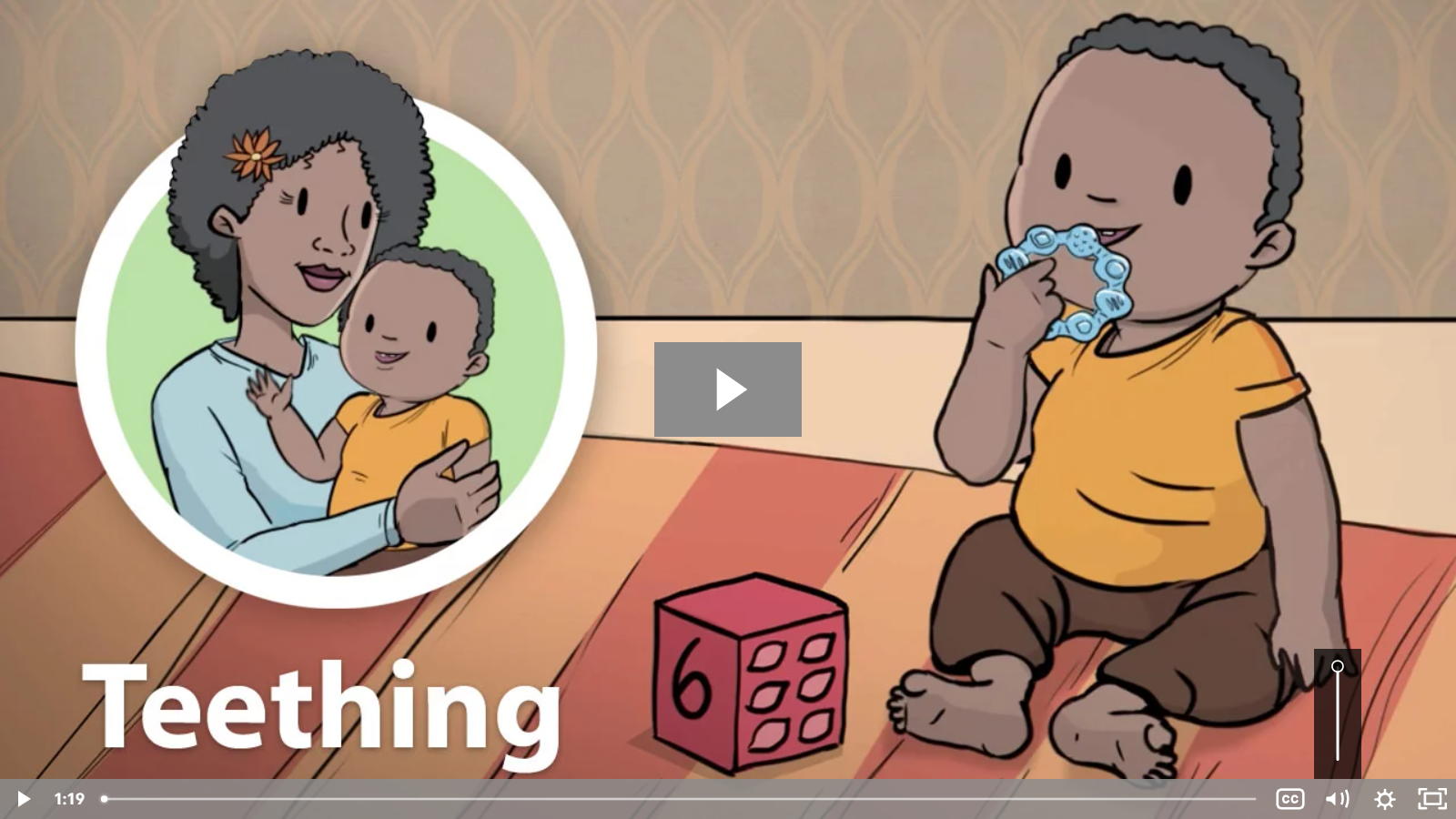Teething Symptoms And Advice

Your baby’s first tooth is kind of a big deal in your bundle of joy’s life. However, it can be painful and uncomfortable. As a parent, you must understand the concept of teething so that you can know how to help your little one get through it. Your baby’s paediatrician may monitor the child’s teeth development for signs of decay. Teething is an important stage in every baby’s life, and there are a number of remedies that you can use to provide relief to your baby during this process

What is teething?
Teething is the process through which a baby’s teeth break through the gums. As mentioned earlier, it is a painful process and makes most parents worry. Normally, for most babies, the first teeth erupt between five to nine months. However, signs and symptoms of teething will start a few weeks or months earlier before the first teeth come out. Usually, your baby’s teeth appear in pairs, starting from the lower jaw to the upper jaw.
Signs and symptoms of teething
Some babies have a smooth teething process. The teeth simply appear with no irritability or discomfort. For others, the process is painful and uncomfortable. Teething symptoms are normally related to jaw and gum discomfort. As the teeth below the surface prepare to break through, a blood blister may be seen over the surface. The larger molars may be more sensitive than other teeth like the incisors because of their larger surface, causing more pain and discomfort.
Generally, a teething baby may have the following symptoms. It is important to note that the symptoms are not the same for all babies. Baby teething symptoms include;
- Increased drooling
- A slight increase in body temperature
- Poor appetite
- Irritability and fussiness that is not continuous
- Restlessness and changes in sleep patterns because of gum discomfort
- Swollen and tender gums
- Diarrhoea and upset stomach
- Mild rash around the mouth because of excess drooling
- Chewing and gnawing on hard objects
How to soothe a teething baby
There are a number of ways to soothe a teething baby. Some of them include;
- Something cold will help soothe your baby’s gums. Try refrigerating the baby’s toys such a teeth rings for a few minutes or using a clean wet washcloth for your baby to chew on. Chewing can distract your baby from the discomfort she is feeling.
- You can massage your baby’s gums gently using your clean finger or a moist gauze pad. Rubbing the baby’s gums gently or allowing her to gnaw on your finger can be soothing.
- Teething gels can also help relieve the baby’s pain. Teething gels contain anaesthetic and antiseptic, which work by preventing infection as well as relieving the pain.
- A little cuddling and affection may just be what your baby needs. You can try holding and comforting your baby to distract her from the discomfort and pain she is feeling.
Teething is a stage in every child’s life. However, if the above symptoms become prolonged and seem concerning, it is important that you contact your doctor.
Springvale Dental Clinic
Springvale Dental Clinic is a dental facility that provides a wide range of dental care and treatments. Our kids’ dentist, Springvale, provides you with enough educational information to help you focus on your child’s oral health goals in the long term. We understand the importance of proper oral health, especially in children, which is why the team at the children’s dental Springvale are all well trained and experienced.
